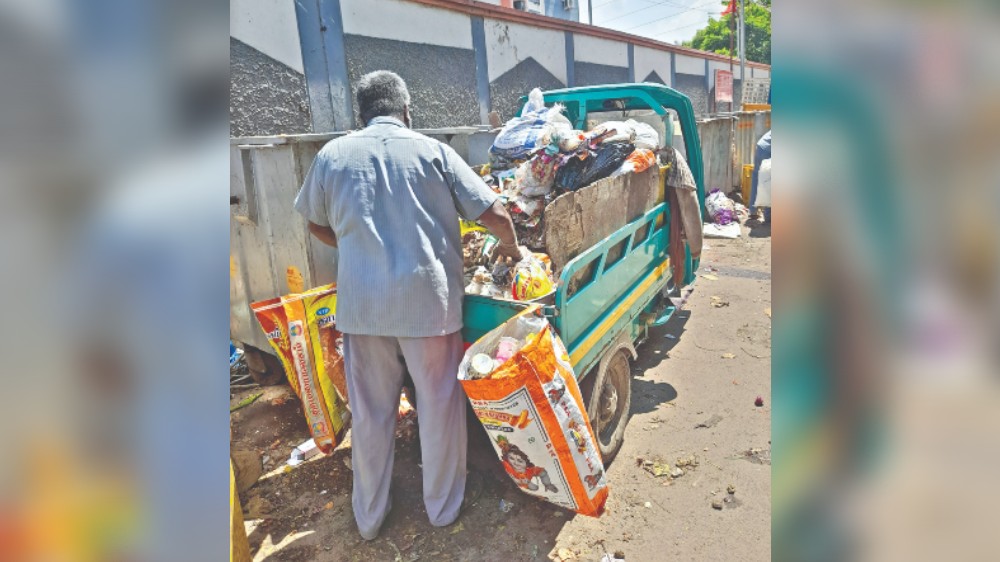Needed, public cooperation in source segregation
The lack of practice has led to sanitary workers facing the burn as they are forced to segregate waste by hand.

CHENNAI: Despite all the required awareness given by the Greater Chennai Corporation (GCC) to segregate waste at the source, the concept seems to have been lost among the public.
The lack of practice has led to sanitary workers facing the burn as they are forced to segregate waste by hand.
A sanitary worker in Villivakkam said, “About 90 per cent of the waste I segregate every day is non-segregated. Over the years, I have stopped feeling the aversion. But, if the public is conscious and understands the purpose of segregating, it will be helpful to us and to society overall.”
The worker further shared about the lack of safety gears in supply to them. “I have bought the gloves and face masks from my own pocket. If asked about it to the Corporation, we are often informed about non-availability.”
Uma Krishnan, a resident of Anna Nagar speaking about the lack of waste segregation practice said, “I have often decided to segregate waste at my home, but the habit seems quite unattainable. Nonetheless, reading about it and through many awareness programmes, I understand the need for it and pledge to segregate.”
However, Uma says the reason for non-segregation is mostly the sense of lethargy among the public to adopt the practice. “It is no doubt people mostly are irresponsible when it comes to environmental concerns and empathy. High time for it to change,” added Uma.
Meanwhile, according to city corporation, three zones- Madhavaram, Kodambakkam and Adyar have achieved around 80 per cent source segregation, while in other zones the segregation has only reached 30 to 40 per cent.
“Though we segregate the waste at home, it is important for us to also discuss and point out that GCC themselves do not segregate waste effectively. The wet and dry waste are often mixed in the end,” said a city-based activist who did not wish to be named.
There was no response from the officials when contacted over the issue.
Visit news.dtnext.in to explore our interactive epaper!
Download the DT Next app for more exciting features!
Click here for iOS
Click here for Android



